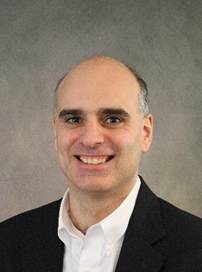MICL Seminar
Tunable Cavities and Cold-Plasma Electronics for Reconfigurable RF Front-Ends
Add to Google Calendar

The next generation of 5G communication systems comes with vastly different requirements for the RF front-ends from what our existing systems are used to. Reconfigurable RF devices in new bands up to 100 GHz are envisioned for 5G systems. Additionally, their multifunctional characteristics tend to impose linearity requirements and interference mitigation schemes that cannot be met today even in existing bands. It becomes imperative to develop new technologies and architectures that will help us meet these goals. In this seminar we will focus on high-performance RF front-end components including resonators, filters, limiters and switches. We will review technology solutions based on tunable miniaturized cavities and cold-plasma electronics for sub-GHz to over 100 GHz bands. We will also present novel multi-band solutions that exhibit i) independent control of frequency and bandwidth, ii) transmission zero creation for all reconfigurable states, iii) intrinsic switching-off capability for transmission bands, and iv) ease of extrapolation to an arbitrary number of passbands. Future needs and possible solutions will conclude this presentation.
Dimitrios Peroulis is Professor of Electrical and Computer Engineering, the Deputy Director of the Birck Nanotechnology Center and the Graduate Admissions Director in the School of Electrical and Computer Engineering at Purdue University. He received his PhD degree in Electrical Engineering from the University of Michigan at Ann Arbor in 2003. His current research interests are focused on the areas of reconfigurable electronics, cold-plasma RF electronics, and wireless sensors. He has been a key contributor on developing high quality reconfigurable filters and filter synthesis techniques based on tunable miniaturized high-Q resonators. He is also leading unique research efforts in high-power multifunctional RF electronics. He received the National Science Foundation CAREER award in 2008. He is an IEEE Fellow and has co-authored over 300 journal and conference papers. In 2014 he received the Outstanding Young Engineer Award of the IEEE Microwave Theory and Techniques Society (MTT-S). In 2012 he received the Outstanding Paper Award from the IEEE Ultrasonics, Ferroelectrics, and Frequency Control Society (Ferroelectrics section). His students have received numerous student paper awards and other student research-based scholarships. He is a Purdue University Faculty Scholar and has also received ten teaching awards including the 2010 HKN C. Holmes MacDonald Outstanding Teaching Award and the 2010 Charles B. Murphy award, which is Purdue University's highest undergraduate teaching honor.
 MENU
MENU